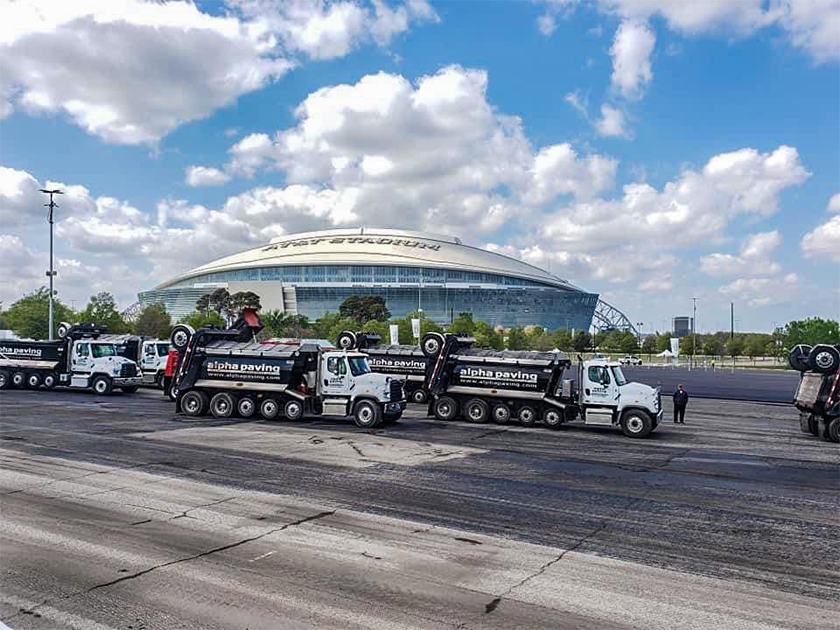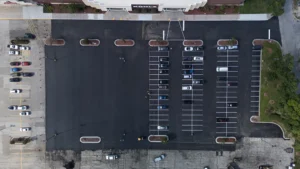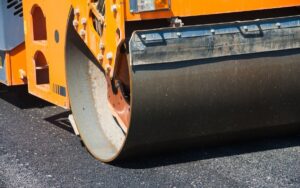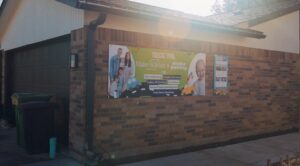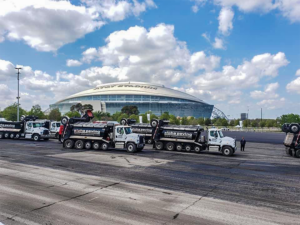 Whether you hired an asphalt company to install an overlay or construct a new pavement, you expected a smooth, even surface. After all, blacktop pavements have long been praised for their smooth, quiet ride, aesthetic appeal, and even color. You were not expecting a bumpy, rough surface, so you are naturally wondering what went wrong. Although there are several possibilities, what most of them come down to is that the contractor made a mistake during the installation.
Whether you hired an asphalt company to install an overlay or construct a new pavement, you expected a smooth, even surface. After all, blacktop pavements have long been praised for their smooth, quiet ride, aesthetic appeal, and even color. You were not expecting a bumpy, rough surface, so you are naturally wondering what went wrong. Although there are several possibilities, what most of them come down to is that the contractor made a mistake during the installation.
Why Isn’t My Asphalt Paving Surface Smooth?
What Are the Mistakes an Asphalt Company Might Make That Would Leave a Bumpy Surface?
Although there are several unusual circumstances that do not involve an error on the contractor’s part, these circumstances are so rare that they are not worthy of consideration. Usually, the problem lies with the aggregates in the mix, the compaction of the material, or the failure of the paving contractor to verify the suitability of installing a pavement overlay.
What Happens When an Asphalt Company Installs an Overlay Over an Unsuitable Pavement?
Before installing a pavement overlay, all cracks in the original pavement need to be sealed. If a local asphalt paving company attempts to install an overlay within six months of the crack sealing, the sealant can heat up during compaction. The combination of heat and pressure forces the crack sealant into the pavement overlay, resulting in a bump. Bumps can also occur if there are irregularities in the underlying pavement that create an uneven surface.
What Happens When an Asphalt Company Makes a Mistake About the Aggregates?
For a smooth surface, the right aggregates are critical. The mix should contain a combination of crushed rocks as well as sand or other small particulates. Furthermore, the rocks should not have smooth edges; smooth-edged rocks will be difficult to compact properly. The aggregates also need to be the right size to allow a sufficient amount of asphalt to cover them to the proper depth. If the aggregates are incorrect, the pavement will be lumpy, and it will begin to deteriorate and chip off in a relatively short time.
How Does Compaction Affect the Smoothness of the Surface?
There are many ways that a local asphalt paving company can ruin a job, but improper compaction is at the top of the list. Hot mix asphalts only give contractors a short time to compact it before becoming too stiff to work. Compaction eliminates the air in the mix to increase the material’s density. If compaction is not adequate, bubbles and gaps can remain in the mix, affecting the smoothness of the pavement’s surface as well as the integrity of the structure. If the surface of your pavement is bumpy, you find loose rocks on the surface, or you can loosen aggregates or bits of asphalt by kicking your pavement, the contractor probably skipped rolling or tamping the surface layer, leaving it to dry on its own. The type of roller can also affect the surface results. For example, a vibratory roller can result in significant bumps when used for breakdown rolling.
For the Paving Austin Customers, Contact Alpha Paving
Alpha Paving offers a full line of paving services to commercial clients throughout Austin and most of Central Texas. Our asphalt services include paving, asphalt overlays, milling, crack repairs, patching, pothole repairs, and sealcoating. We also offer street maintenance, parking lot striping, speed bump installations, thermoplastic markings, parking lot wheel stops, road construction, concrete repairs, parking lot signage, and concrete installation. We have an exceptional reputation for craftsmanship, dependability, service, and professionalism. Request your free quote today by submitting the online form, calling 512-677-9001, or emailing Info@AlphaPaving.com.

